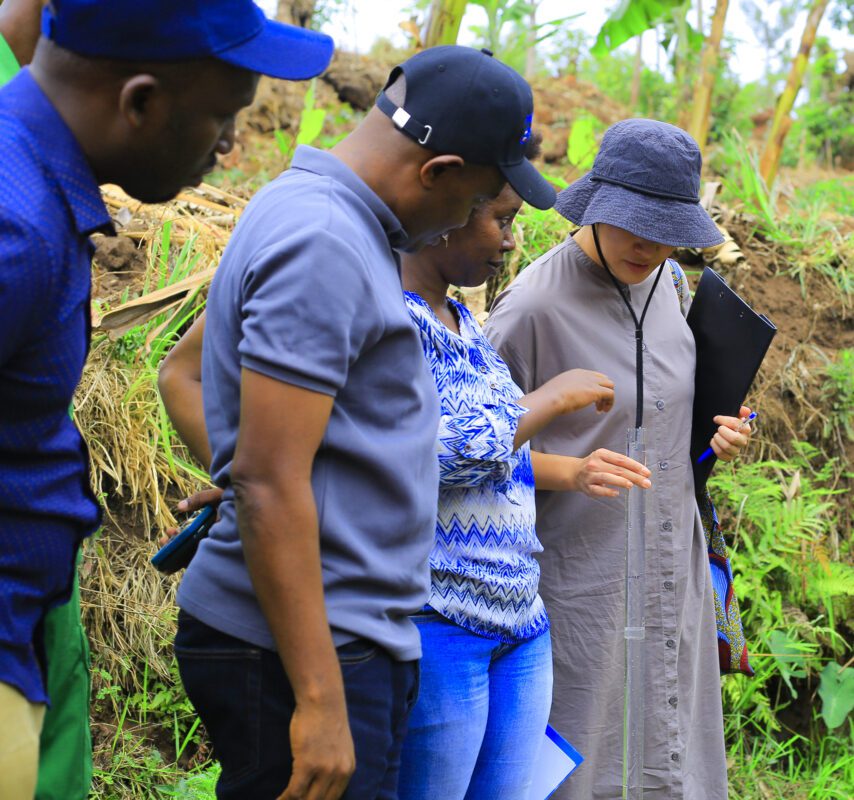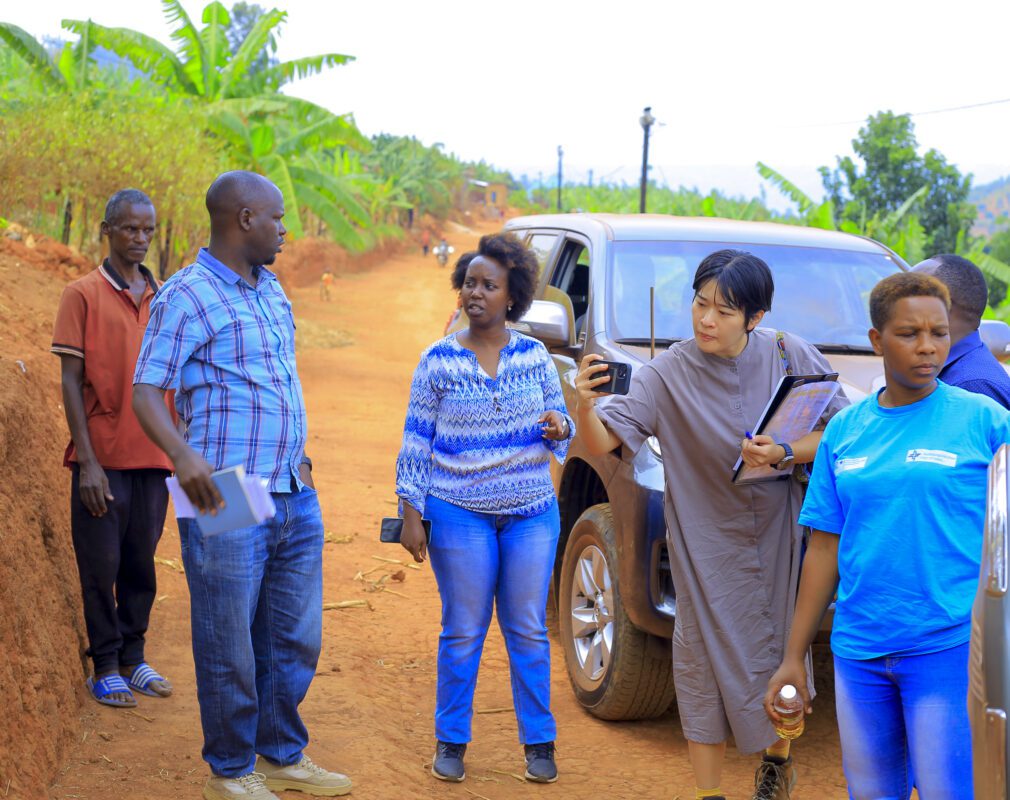Rwanda, 17th September 2024 – A team from the Embassy of Japan, led by the Grant Assistance for Grassroots Human Security Projects (GGP) Coordinator, accompanied by the ARDE/KUBAHO team and local authorities, conducted a pre-grant field visit to Kirehe District. The visit aimed to evaluate the feasibility and alignment of the proposed project titled “Increasing Access to Clean Water for Rwantonde Community in Kirehe District” with the realities on the ground.
The project site spans across three villages—Mitoyi, Cyiha, and Karehero—in Rwantonde Cell, Gatore Sector. The area, located 159 kilometers from Kigali and 22 kilometers from the Kirehe District office, has been grappling with severe water shortages, with only 10% of the population in Rwantonde Cell having access to clean water.
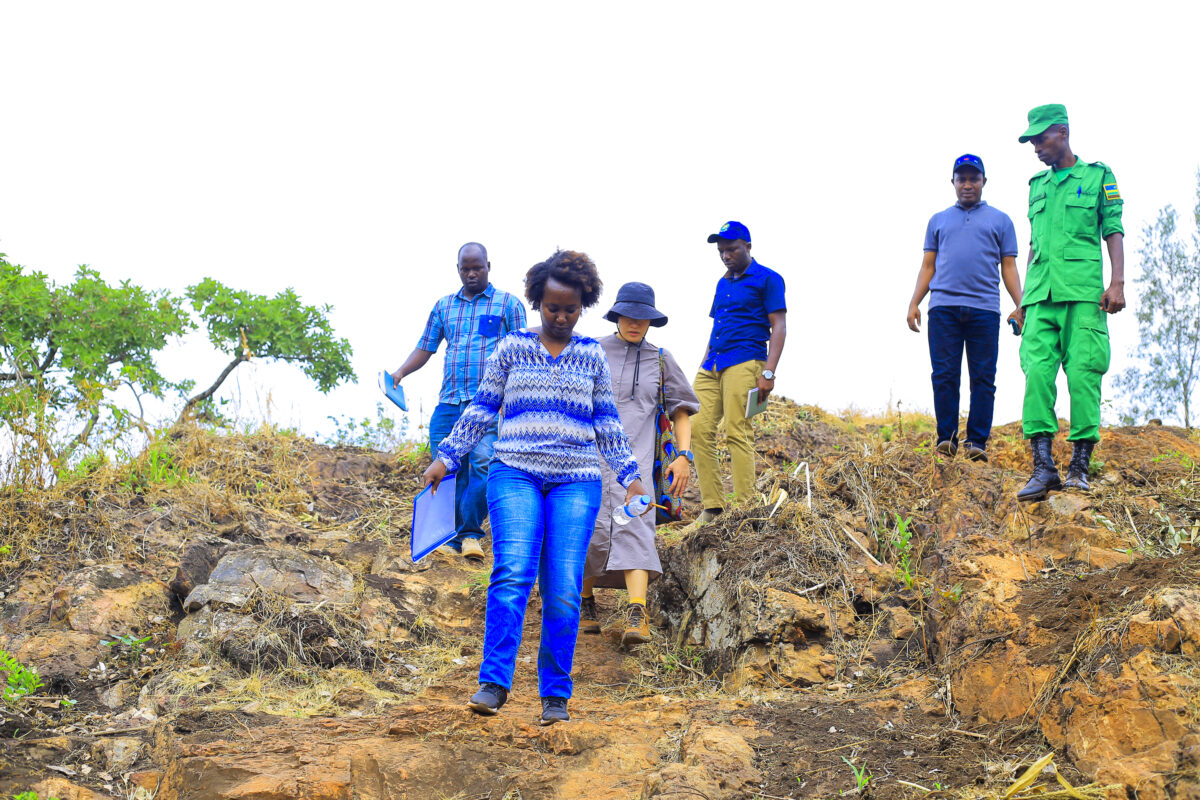
The whole delegation walking towards the water spring
Project Background and Purpose
The proposed project, titled “Increasing Access to Clean Water for Rwantonde Community in Kirehe District”, is a critical intervention in response to the severe water challenges facing the region. Kirehe District, particularly Gatore Sector’s Rwantonde Cell, suffers from an alarming
lack of access to safe water. Currently, only 10% of the population in this area has access to improved water sources, significantly below the national target of 100% clean water access by 2024.
Access to clean water is essential for health, education, and economic development, particularly for women and children who are typically responsible for water collection. The United Nations recognizes access to water as a fundamental human right, and this project seeks to fulfill that right for the 7,088 residents of Rwantonde Cell, as well as students and staff at Indatwa Primary School and a local commercial center.
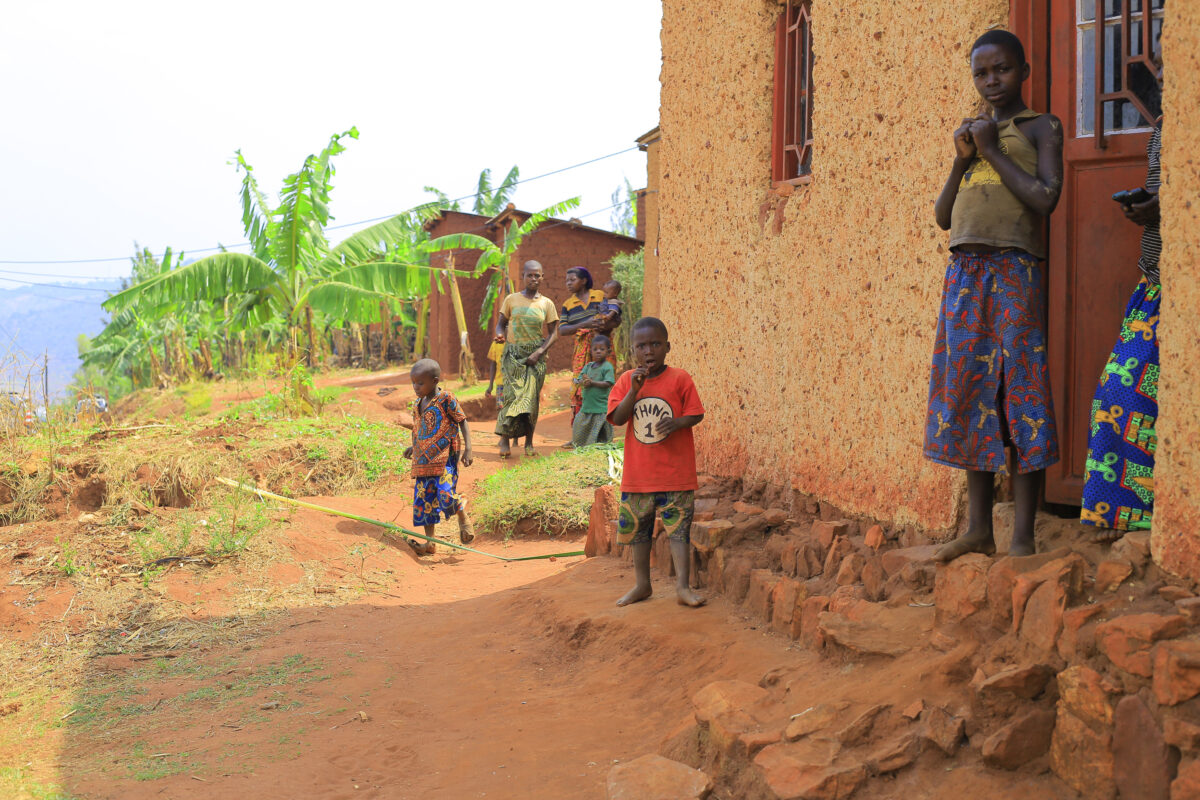
Rwantonde residents
Urgent Need for Clean Water
Waterborne diseases remain a significant health risk in the area, with many relying on contaminated water sources from rivers and unprotected springs. The local economy, heavily reliant on agriculture, is also strained as women and children spend significant time fetching water instead of participating in income-generating activities or attending school.
The project aims to address these challenges by constructing new water facilities, which will benefit 1,900 households and key institutions such as schools and health centers. The project also includes components for hygiene education, with training programs to improve community knowledge on proper sanitation and water facility maintenance.


E.P. INDATWA, a nearby school which is in urgent need of water
Objectives and Expected Outcomes
The primary objective is to provide reliable access to clean water, reducing waterborne diseases and improving the overall quality of life for the Rwantonde community. Specific goals include:
- Increasing access to clean water for households and institutions in Rwantonde. 2. Raising awareness of hygiene practices through training and mobilization. 3. Ensuring the sustainability of the water facilities through community engagement and management structures.
The project is expected to bring significant improvements in health and education, particularly for children who will no longer need to drop out of school to fetch water. It will also empower women by freeing up time for economic activities, further promoting gender equality in the region.
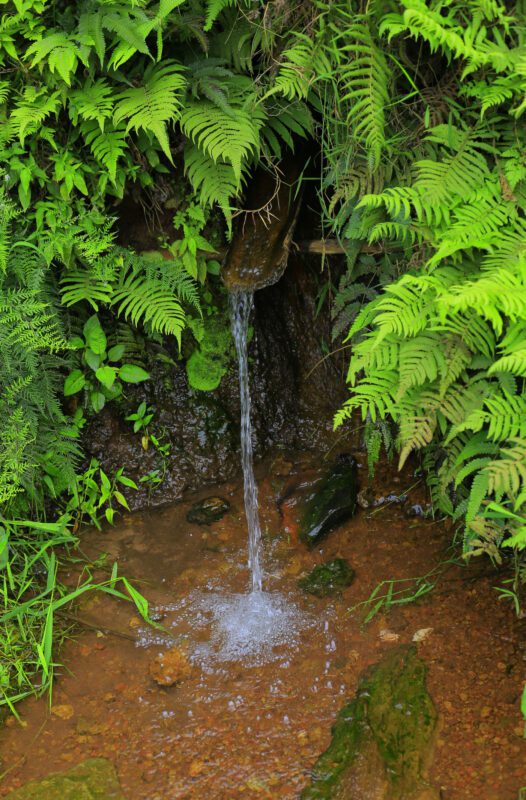
The water spring which will be used to serve water
PICTORIAL
